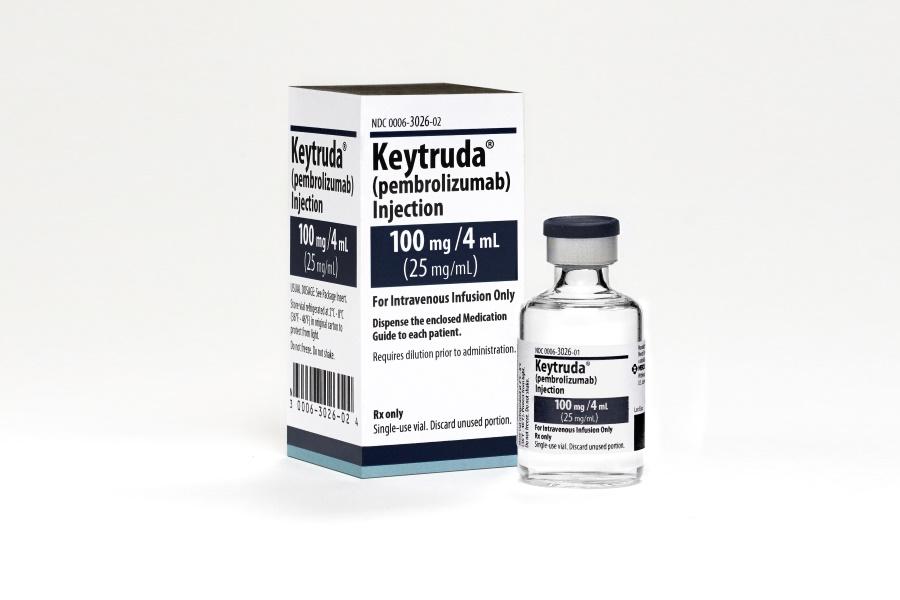Keytruda shadows GSK's Jemperli in endometrial cancer

GSK had just two months to celebrate the positive phase 3 result with its checkpoint inhibitor Jemperli as a first-line therapy for endometrial cancer, before Merck & Co crashed the party.
Merck's Keytruda (pembrolizumab) has hit the mark in the late-stage NRG-GY018 trial, with a combination of the drug plus chemotherapy improving progression-free survival (PFS) versus chemo alone in patients with stage 3 to 4 or recurrent endometrial carcinoma, regardless of mismatch repair status.
The result comes after GSK reported that Jemperli (dostarlimab) plus chemo hit the mark in the RUBY trial in primary advanced or recurrent endometrial cancer, becoming the first immunotherapy to show an improvement in PFS when used as first-line treatment, in patients with and without mismatch repair mutations.
Merck has said it will now look at regulatory filings for Keytruda based on the results of the NRG-GY018, which was sponsored by the National Cancer Institute (NCI) in the US and designed and led by NRG Oncology.
Both Keytruda and Jemperli already have approvals as monotherapies in second-line or later endometrial cancer settings, but approval in the first-line setting would unlock a larger eligible patient population.
GSK's drug was cleared by the FDA for recurrent or advanced endometrial cancer with mismatch repair deficient (dMMR) mutations in August 2021, and the company said in December that it planned to file Jemperli for first-line use in the first half of 2023.
Meanwhile, Keytruda has an FDA green light in advanced endometrial carcinoma that is microsatellite instability-high (MSI-H) or dMMR in March 2022, as well as in a combination regimen alongside Eisai's Lenvima (lenvatinib) in previously treated endometrial cancer without dMMR mutations.
Approval in first-line endometrial cancer would be a bonus for Merck, adding to a broad list of indications for Keytruda that have made it the undisputed market leader among checkpoint inhibitors, with sales of more than $20 billion last year.
It would be a much bigger deal for GSK, which needs Jemperli to add some momentum to its oncology franchise after multiple setbacks, including the withdrawal of its US marketing approval for multiple myeloma therapy Blenrep (belantamab mafodotin) last month, the narrowing of the label for PARP inhibitor Zejula (niraparib), and a retreat from the cell therapy category.
GSK has set a target of £1 billion to £2 billion ($1.2 billion to $2.4 billion) for Jemperli sales, but it has a very long way to go – the drug brought in just £21 million last year.












